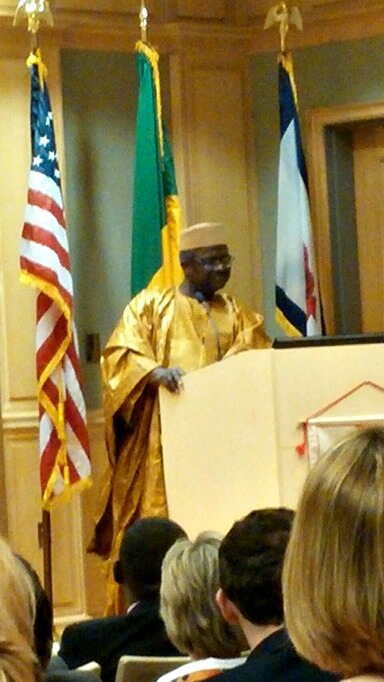The U.S. ambassador to Mali, Tiena Coulibaly, proposed an ongoing relationship between his country and Shepherd University, during a speech to students Wednesday.
The ambassador’s nation is in West Africa and home to nearly 14.5 million people.
“Only one thing works in the world—the truth. To choose the easy way is not to the good way. Do the best and do the good thing,” Coulibaly said.
The ambassador also spoke about living in an underdeveloped country and the differences between it and the U.S.
“We have projects to build irrigation systems because we don’t have them right now and we need them,” the ambassador said.
Since it is an underdeveloped country, Malians are extremely worried about the high rate of poverty, Ambassador Coulibaly explained. The gross domestic product of Mali is $10.94 billion in U.S. dollars. The poverty rate has been at 40 percent since 2011.
“The biggest cause of poverty is that the ground wealth is poor. The economy of Mali is based on agriculture, but we don’t have resources for irrigation. We rely on rain, but don’t have much rain. The government is working hard on it, because we need those ground resources to develop agriculture for money,” Coulibaly said.
Ambassador Coulibaly moved on to talk about human rights and how they’re affected in the wake of a civil war.
“They improve every day; we have the Malian Association of Human Rights, but human rights and wartime don’t go well together. People were killed in the wars just for being white. During war it’s difficult, but we have many associations dedicated to this. I’m deeply convinced that if we don’t come together, then we won’t go far,” Coulibaly said.

